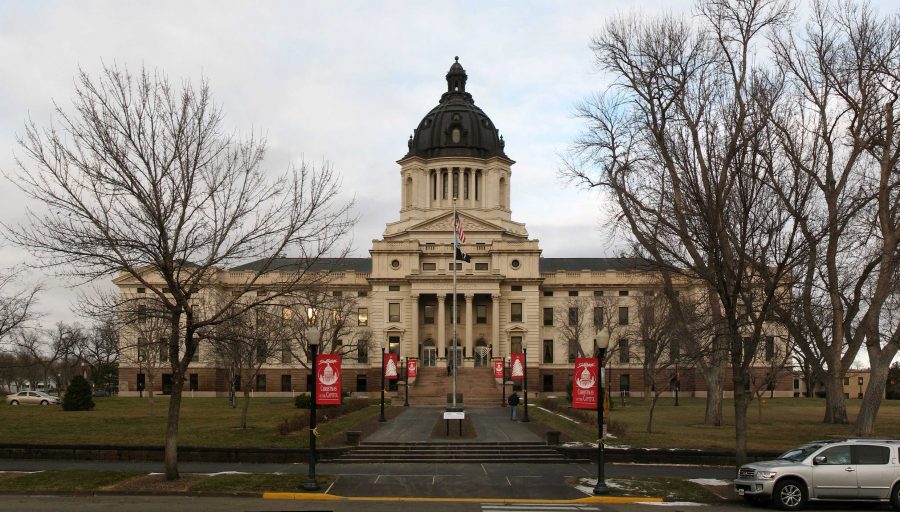Pass a civics test or don’t graduate: HB 1087 explained
February 5, 2019
The Students’ Association is opposing a South Dakota House bill that would require all SDSU students to take a civics test, three credits of United States history and three credits of U.S. government to graduate.
HB 1087’s purpose is to “promote intellectual diversity at certain institutions of higher education.” The six new credits and the civics test appear in Section 11 and Section 12 and will be required for all students seeking a bachelor’s degree at South Dakota public universities who graduate after Jan. 1, 2020.
The House Education Committee will hear House Bill 1087 at 7:45 a.m. Wednesday. Rep. Lee Qualm, one of the sponsors of the bill, said that he doesn’t know if the government and history credits would be covered by SGR 3 or would be an additional requirement.
“The decision will be made that day when it’s in committee,” Qualm said. “We will get it figured out by then.”
The Students’ Association passed a resolution Monday night opposing HB 1087, and SA President Allyson Monson and SA Vice President Spencer Harwood will be traveling to Pierre to lobby against it.
“We are in favor of the Board of Regent’s autonomy. They are the experts in higher education,” Harwood said. “Really, [the bill] just creates more bureaucracy and red tape.”
Harwood believes the bill will be amended, possibly to change the credit requirement and civics test, and thinks the bill might be tabled and heard again Friday.
Qualm supports the bill because he does not believe university students are receiving proper education about U.S. civics and history.
“I have a concern that a lot of the history has been cut off and modified,” Qualm said. “In some of the (text)books I have seen, things have not been taught the way I was taught them.”
Qualm did not remember any specifics.
He said it would be up to the South Dakota Board of Regents to administer the civics test. The test would be similar to the U.S. citizenship test and would require students to pass with 85 percent or higher. He does not know if the test would be free or not.
Will Prigge, head of the history, philosophy, religion and political science department, said he would be open to providing the classes if the Legislature passes the bill. But, he feels the current timeline will be difficult to manage. An incoming class of freshman is approximately 3,000 students, but if all students are required to take the additional credits, that would be a total of 12,000 students that the department has to serve that year.
“I would probably need eight instructors (for incoming freshmen), and an instructor with health (benefits) is about $65,000 a year, so $65,000 times eight would be my ballpark estimate,” Prigge said. “But if it’s January 2020, one year from now, I would need, at least for that one time, three times as much staff to teach the course.”
Based on Prigge’s estimate, the current bill would cost the university and students approximately $1.5 million over the first few years. After the initial group of students rushing to complete credits graduates, the cost would be about $520,000 a year.
Qualm did not know where the money would come from, but he says it would probably come from student tuition. Prigge said the funds would probably have to come from savings or other university colleges, but he doesn’t know any specifics.
“The finance tree is finite and it either has to come from without or it has to come from within,” Prigge said.
The civics test proposal is similar to another house bill that would require all high school students to take a civics test before graduating. Gov. Kristi Noem believes this should be a high school requirement but has not spoken about civics tests at universities.
Prigge does not oppose the civics test or the six extra credits because he believes it’s important to know about history and government. But he is not without his reservations.
“It would be better if it could be phased in and we begin this with incoming freshman,” Prigge said. “It would be big, but I could handle it.”






















